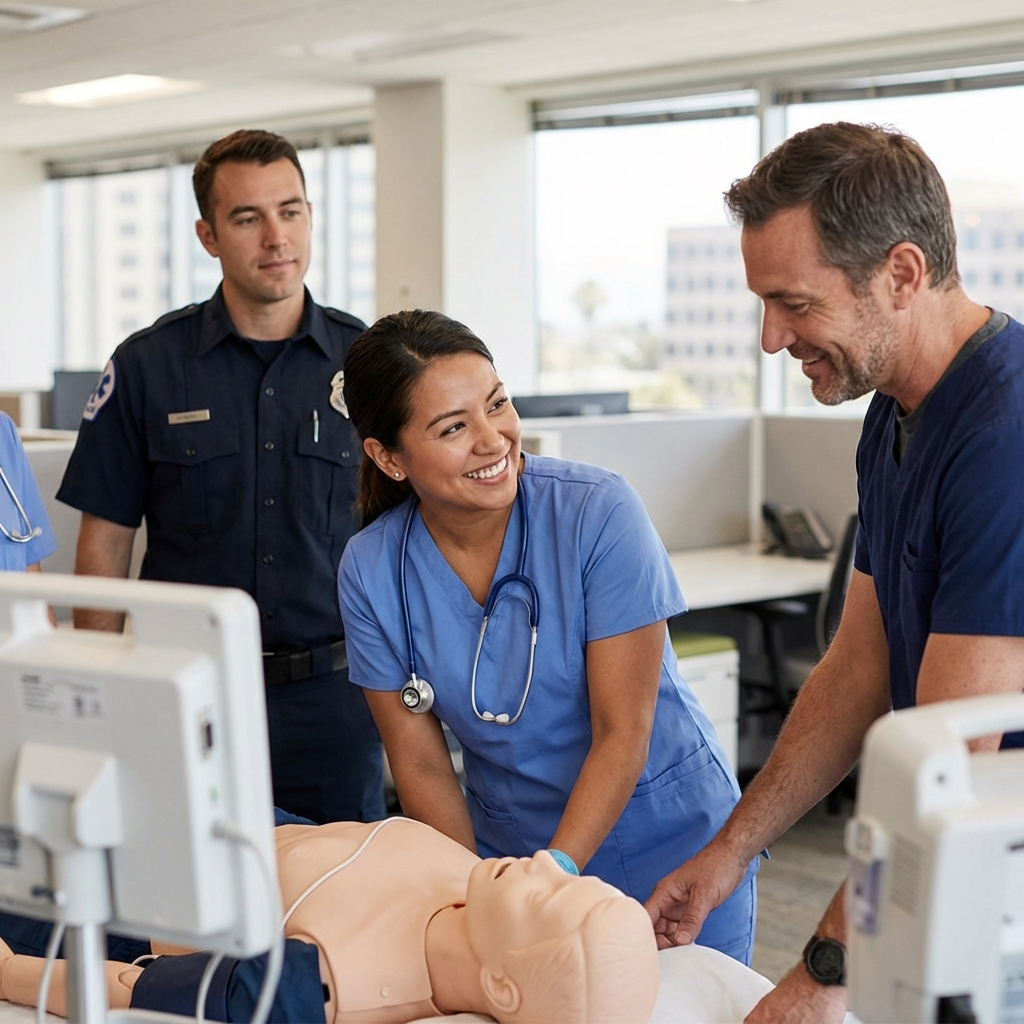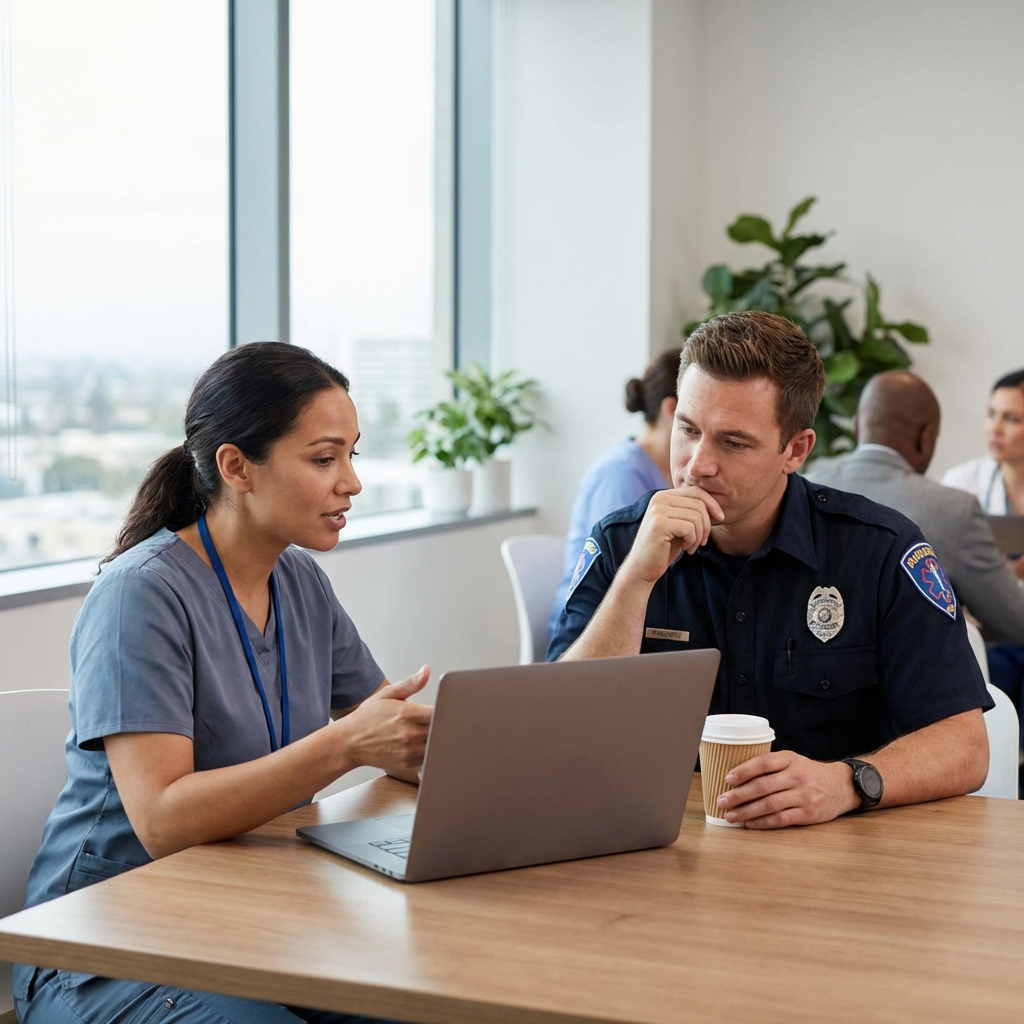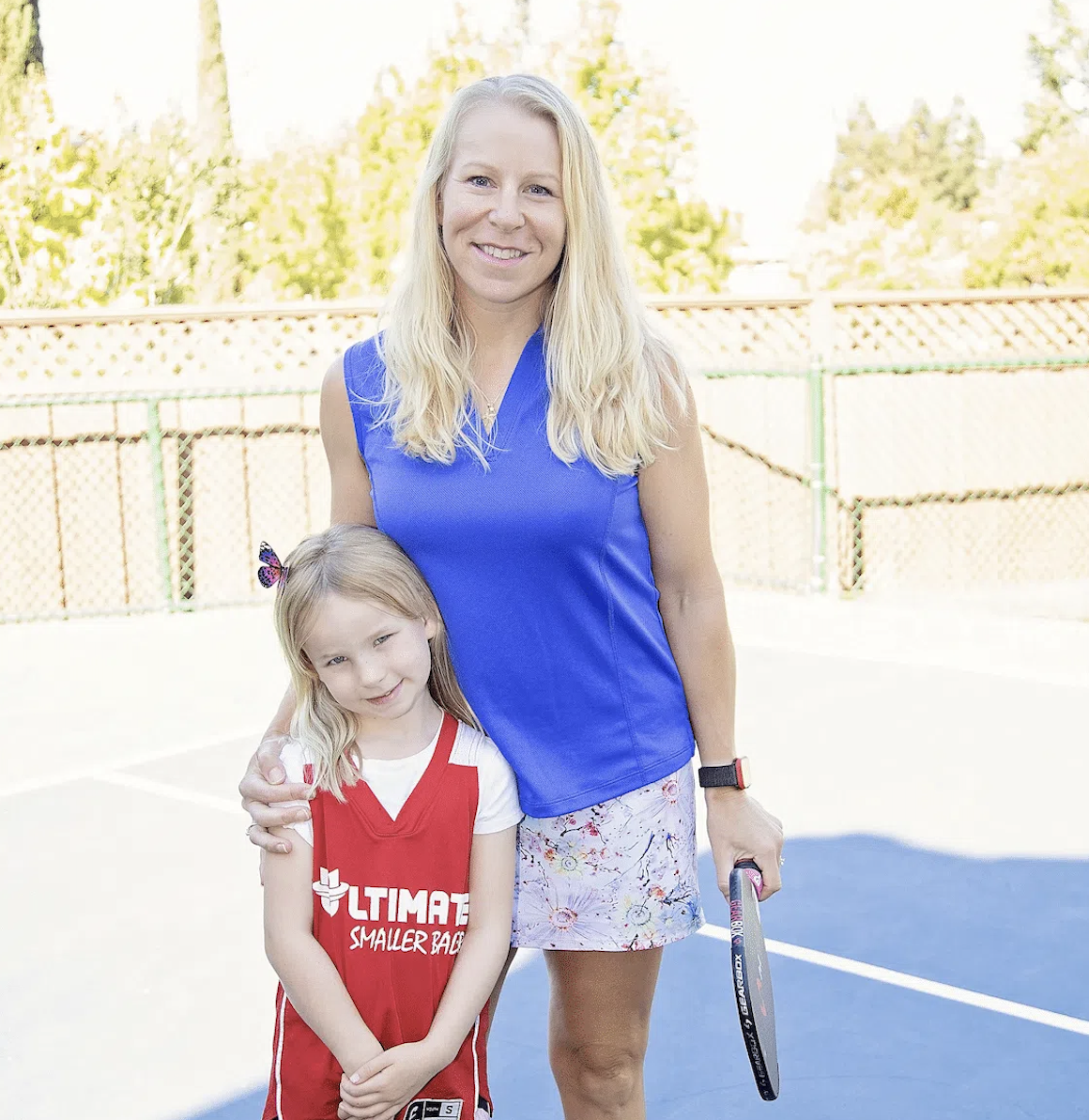Rural healthcare facilities face unique challenges that urban medical centers rarely encounter. Limited staff, budget constraints, and geographic isolation can make traditional training difficult. That’s where RQI classes transform how rural healthcare providers maintain critical certifications.
The American Heart Association’s RQI (Resuscitation Quality Improvement) program offers rural facilities a modern solution to age-old training challenges. Instead of sending staff hours away for certification, RQI brings quality training directly to your facility through innovative technology.
Rural hospitals, clinics, and emergency services can now provide their teams with BLS, ACLS, and PALS certifications without the logistical nightmares of traditional classroom training. This shift isn’t just convenient—it’s revolutionizing rural healthcare education.
What Makes RQI Different from Traditional Training
Traditional CPR and life support training requires healthcare workers to travel to certified training centers. For rural facilities, this often means staff must drive hours to reach the nearest location. The time away from work, travel costs, and scheduling conflicts create significant barriers.
RQI eliminates these obstacles through a streamlined three-step process:
Step 1: Complete the American Heart Association online course at your convenience. The flexible timing allows staff to learn during breaks or off-hours without disrupting patient care.
Step 2: Perform skills testing using Voice-Assisted Manikins (VAM). These high-tech training devices provide real-time feedback and ensure proper technique.
Step 3: Receive official AHA certification cards the same day. No waiting weeks for credentials to arrive in the mail.
This approach cuts training time dramatically while maintaining the same rigorous standards expected from American Heart Association certifications.
The Rural Healthcare Challenge
Rural healthcare facilities operate under constant pressure. Staff shortages mean every employee plays a critical role in patient care. When team members must leave for multi-day training sessions, remaining staff face increased workloads and stress.
Geographic isolation compounds these challenges. The nearest training center might be 100+ miles away, requiring overnight stays and additional expenses. Small budgets make these costs particularly burdensome for rural facilities already struggling with financial constraints.
Traditional training schedules often conflict with rural healthcare’s unpredictable demands. Emergency situations, severe weather, or staffing shortages can force last-minute cancellations, pushing certification renewals further behind schedule.
We’ve seen rural facilities delay critical training for months due to these logistical hurdles. RQI classes solve these problems by bringing certification directly to healthcare providers.
How RQI Transforms Rural Training Logistics
RQI’s flexible format adapts perfectly to rural healthcare’s unique needs. Staff can complete online coursework during quiet periods between patient visits. Night shift workers can train during downtime. Day shift employees can learn during lunch breaks.
The Voice-Assisted Manikin technology eliminates the need for certified instructors to travel to remote locations. These sophisticated training devices guide learners through proper CPR techniques, provide instant feedback, and ensure competency standards are met.
Rural facilities can schedule skills testing sessions around their operational needs. Multiple staff members can train simultaneously, maximizing efficiency and minimizing disruption to patient care.
Cost Benefits That Matter to Rural Facilities
Budget constraints significantly impact rural healthcare facilities. RQI classes deliver substantial cost savings compared to traditional training methods:
Eliminated Travel Expenses: No mileage reimbursements, hotel costs, or meal allowances for staff traveling to distant training centers.
Reduced Staffing Coverage: Shorter training sessions mean less money spent on temporary coverage or overtime for remaining staff.
Bulk Training Efficiency: Multiple team members can complete certifications simultaneously, spreading costs across larger groups.
We offer the lowest-priced American Heart Association courses in California, backed by our low price guarantee. Rural facilities working with tight budgets appreciate this commitment to affordability without compromising quality.
Technology That Works in Rural Settings
Rural areas often struggle with internet connectivity and technology infrastructure. RQI addresses these concerns through user-friendly systems designed for various technical environments.
The online coursework works with standard internet connections and doesn’t require specialized equipment. Healthcare workers can access training materials from any computer or mobile device.
Voice-Assisted Manikins operate independently without constant internet connectivity during skills testing. This ensures training can proceed even if network issues arise.
Our technical support team provides assistance seven days a week, understanding that rural facilities may need extra help navigating new training technologies.
Maintaining Quality Standards in Rural Settings
Some rural healthcare administrators worry that flexible training might compromise education quality. RQI actually enhances training effectiveness through several key features:
Standardized Curriculum: Every learner receives identical American Heart Association content regardless of location.
Objective Assessment: Voice-Assisted Manikins provide consistent, unbiased evaluation of skills performance.
Immediate Feedback: Real-time coaching during practice sessions helps learners master techniques more effectively.
Comprehensive Tracking: Digital systems monitor progress and ensure all requirements are met before certification.
These technological advantages often produce better learning outcomes than traditional classroom settings where instructor quality may vary.
Real Impact on Rural Patient Care
Better-trained staff directly improves patient outcomes in rural healthcare settings. When more team members maintain current certifications, facilities can respond more effectively to medical emergencies.
RQI’s efficiency means certifications stay current instead of lapsing due to scheduling difficulties. This continuity ensures rural patients receive the same quality emergency care available in urban medical centers.
Reduced training-related absences mean better staffing consistency for routine patient care. Rural communities depend heavily on their local healthcare providers, making this stability particularly valuable.
Implementation Support for Rural Facilities
We understand that adopting new training methods can feel overwhelming for busy rural healthcare administrators. Our support services help facilities transition smoothly to RQI classes:
Initial Setup Assistance: Our team guides administrators through program implementation, ensuring smooth integration with existing operations.
Staff Training: We provide orientation sessions to help healthcare workers feel comfortable with the new training format.
Ongoing Support: Questions and technical issues receive prompt attention from our customer service team, available daily from 8 AM to 10 PM.
Scheduling Flexibility: We work around your facility’s unique needs to arrange skills testing sessions at convenient times.
Getting Started with RQI for Your Rural Facility
Rural healthcare facilities ready to modernize their training approach can begin immediately. We serve locations throughout California with over 70 offices, ensuring rural areas receive the same quality service as urban centers.
Contact our team to discuss your facility’s specific needs and learn how RQI classes can solve your training challenges. We’ll help you calculate potential cost savings and develop an implementation plan that works with your operational schedule.
Your rural community deserves healthcare providers with current, high-quality certifications. RQI classes make this goal achievable regardless of geographic location or budget constraints.
Transform Your Rural Healthcare Training Today
RQI classes represent more than just a new training method—they’re a solution specifically designed for rural healthcare’s unique challenges. The combination of flexible scheduling, cost savings, and maintained quality standards makes RQI ideal for rural facilities.
Don’t let geographic isolation or budget constraints prevent your staff from maintaining critical certifications. Explore how RQI classes can transform your facility’s approach to life support training while improving patient care capabilities.
Ready to bring cutting-edge training to your rural healthcare facility? Connect with our team at Safety Training Seminars to learn more about implementing RQI classes for your staff. We’re committed to supporting rural healthcare through innovative, accessible training solutions.
For those looking to complement their first aid skills with life-saving CPR techniques, enrolling in BLS CPR Classes in San Ramon provides a convenient and comprehensive training experience. Alternatively, BLS CPR Classes in Stockton offer flexible scheduling and expert instruction for residents in the Central Valley.









